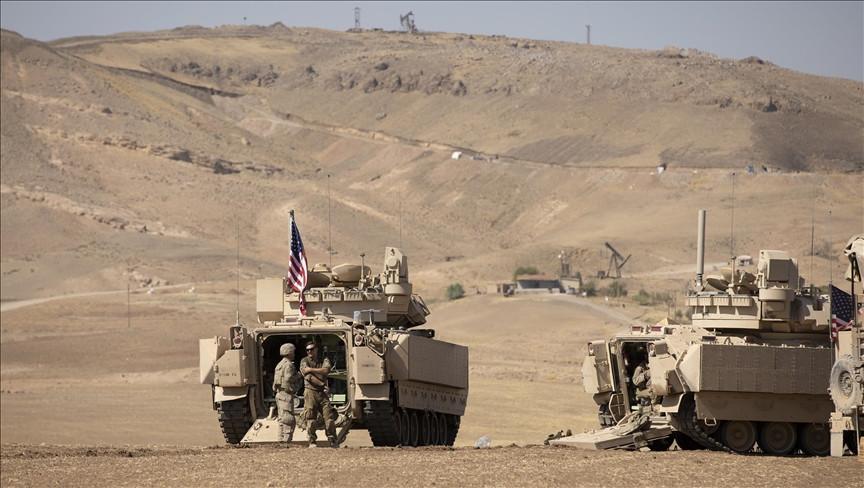
Washington is pressuring Syria’s new leadership with a set of conditions in exchange for limited sanctions relief, the Wall Street Journal reported on April 18, citing officials familiar with a draft policy directive.
According to the report, the Trump administration has asked Damascus to take concrete action against extremist groups operating within Syria, and to expel Palestinian factions.
U.S. officials also reportedly expect Damascus to ban fundraising and other activities linked to these groups, and to issue a public statement denouncing extremism.
Broader demands reportedly include cooperating with the Organization for the Prohibition of Chemical Weapons (OPCW) to secure chemical remnants, protecting uranium stockpiles and appointing a liaison to help locate 14 missing American citizens.
These reported conditions come amid a shift in Syria’s political landscape following the ouster of Bashar al-Assad in December 2024. Some European nations have already resumed diplomatic engagement with Damascus, and the EU has begun easing sanctions. While Washington has signaled a similar approach, detailed negotiations are still ongoing.
Officials told the paper that if Syria complies, the U.S. may extend a narrow sanctions exemption introduced during the Joe Biden era to support humanitarian aid.
Other incentives under consideration include formal recognition of Syria’s territorial integrity, steps toward restoring diplomatic relations and possibly removing certain individuals from terrorism-related sanctions lists.
A U.S. State Department official was quoted as saying that Washington does not currently recognize any governing entity in Syria as legitimate, emphasizing that interim authorities must “fully reject and combat terrorism.”
Notably, the draft policy document makes no mention of Russia’s military presence or Damascus-Moscow relations, suggesting Washington is not prioritizing pressure on that front for now.
Congressional delegation visits Damascus
In a parallel development, two Republican congressmen — Cory Mills of Florida and Marlin Stutzman of Indiana — arrived in Damascus on April 18, becoming the first U.S. lawmakers to visit Syria in years.
They were accompanied by members of the Syrian-American community.
The visit signals renewed Republican interest in Syria following the leadership change. The delegation is scheduled to meet with government officials, including newly appointed President Ahmad al-Sharra, as well as religious leaders and representatives of the Christian minority.
US withdrawing hundreds of troops: Report
The Wall Street Journal report comes amid a flurry of media claims that Washington is preparing to draw down its military presence in Syria.
According to the New York Times, which cited two senior officials on April 17, the U.S. military has begun closing three of its eight operating bases in northeast Syria.
Troop numbers are expected to decrease from around 2,000 to 1,400 during an initial drawdown phase. Further reductions may follow a 60-day review, though military officials have recommended retaining a minimum force of 500 troops.
President Donald Trump earlier expressed skepticism over prolonged U.S. deployments in Syria. In January, he stated that a final decision would be made following internal assessments.
American forces continue to support the YPG in its fight against ISIL. Ankara has consistently called on Washington to end this cooperation, citing that the YPG is the Syrian offshoot of PKK, which it designates as a terrorist group.
At a recent conference in Iraq, a YPG official responded to reports of a potential U.S. withdrawal by saying, “We have always relied on our own strength,” while hinting at new possible alliances.